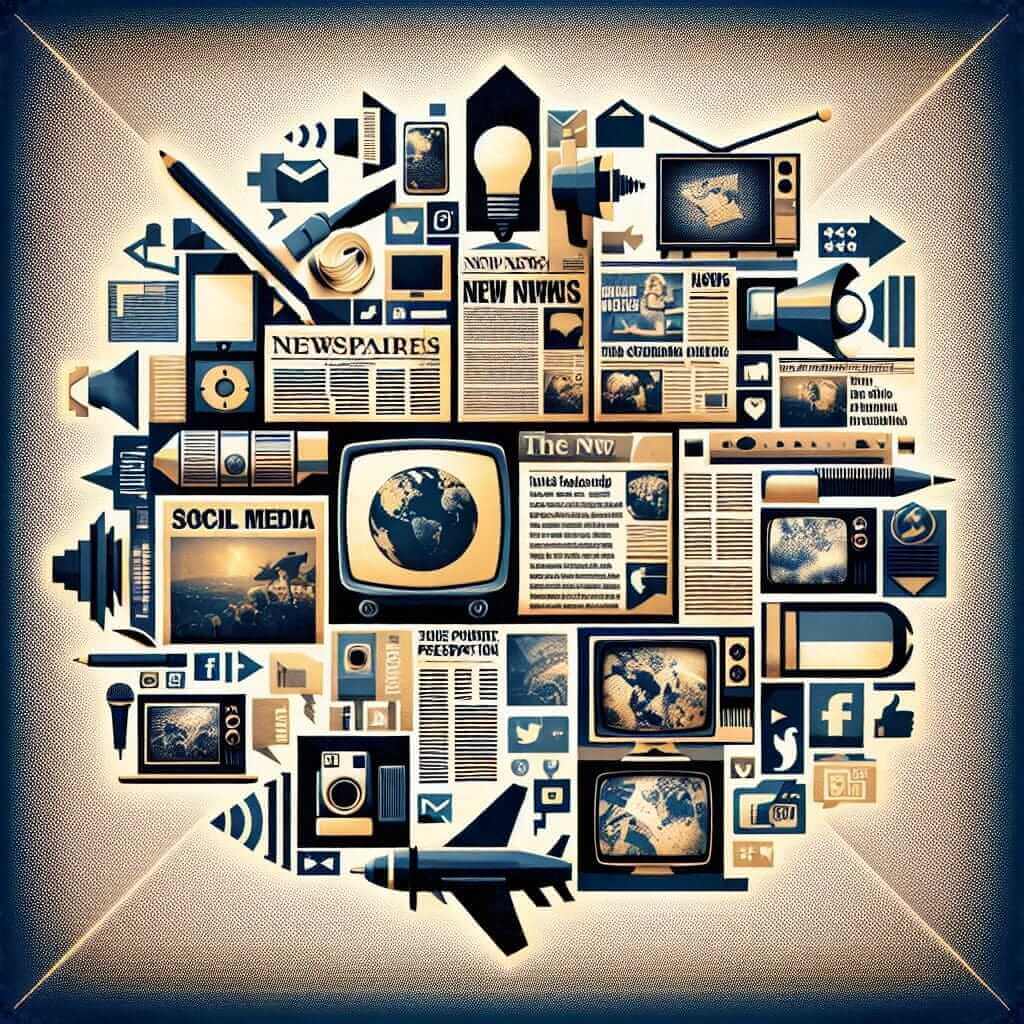The role of the media in shaping public opinion is an increasingly prevalent topic in the IELTS Writing Task 2 exam. This essay will delve into this complex issue, examining how various forms of media influence our views and the potential consequences of their power.
Here are some recent IELTS Writing Task 2 questions related to this topic:
- To what extent do you agree or disagree with the statement: “The media has too much influence on people’s lives today”?
- Some people believe that the media’s coverage of negative news events has a harmful effect on society. Others argue that it is important for the public to be aware of such events. Discuss both these views and give your own opinion.
- With the rise of social media, many people are getting their news from online sources rather than traditional media outlets. What are the advantages and disadvantages of this trend?
Analysing the Impact of Media on Public Opinion: A Sample Essay
Let’s analyse the first question in detail:
To what extent do you agree or disagree with the statement: “The media has too much influence on people’s lives today”?
This question requires you to present a clear stance on the extent to which you agree or disagree with the given statement. You need to provide relevant examples and logical reasoning to support your viewpoint.
Sample Essay:
It is an undeniable fact that the media plays a pervasive role in contemporary society, infiltrating many aspects of our lives. While some argue that its influence has become excessive, I firmly believe that such a view overlooks the multifaceted nature of media and its ultimately beneficial impact.
Firstly, it is crucial to acknowledge that the media is not a monolithic entity. It encompasses a vast spectrum of platforms, from traditional newspapers and television broadcasts to online news portals and social media networks. Each of these avenues possesses its own biases and caters to specific demographics. Consequently, individuals are exposed to a diverse range of perspectives, fostering critical thinking and informed decision-making. For instance, by accessing news from both liberal and conservative outlets, individuals can gain a more balanced understanding of political issues.
Moreover, the media serves as a crucial watchdog, holding those in power accountable and exposing corruption and injustice. Investigative journalism, in particular, has played a pivotal role in uncovering scandals and prompting social change. The Watergate scandal, which led to the resignation of US President Richard Nixon, stands as a testament to the media’s ability to challenge authority and safeguard democratic values.

However, it is equally important to acknowledge the potential pitfalls associated with the media’s influence. The relentless pursuit of sensationalism and the proliferation of fake news can distort public perception and erode trust in legitimate sources of information. Additionally, the rise of social media has created echo chambers where individuals are primarily exposed to information that reinforces their existing beliefs, leading to increased polarisation and intolerance.
In conclusion, while it is true that the media can exert a powerful influence on our lives, it is an oversimplification to assert that this influence is inherently negative or excessive. By promoting media literacy, encouraging critical consumption of information, and fostering a diverse and independent media landscape, we can harness the transformative power of the media while mitigating its potential drawbacks.
(Word count: 322 words)
Key Considerations for Writing about the Media’s Influence:
- Provide Specific Examples: Ground your arguments with real-world examples of media influence, such as specific news stories, advertising campaigns, or social media trends.
- Acknowledge Both Sides: While presenting your stance, acknowledge the opposing viewpoint and address it thoughtfully.
- Use Linking Words: Employ a variety of linking words and phrases to ensure a smooth flow of ideas and enhance the coherence of your essay.
- Maintain a Formal Tone: Adhere to a formal and objective tone throughout your essay, avoiding colloquialisms or overly personal opinions.
Vocabulary Builder:
- Pervasive (adjective): /pəˈveɪsɪv/ – Spreading widely throughout an area or a group of people.
- Multifaceted (adjective): /ˌmʌltiˈfæsɪtɪd/ – Having many different aspects or features.
- Monolithic (adjective): /ˌmɒnəˈlɪθɪk/ – Large, powerful, and indivisible.
- Demographics (noun): /ˌdeməˈɡræfɪks/ – Statistical data relating to the population and particular groups within it.
- Watchdog (noun): /ˈwɒtʃdɒɡ/ – A person or organization that monitors the activities of a particular part of industry or society to ensure that it operates legally and fairly.
Conclusion
Understanding the multifaceted role of the media in shaping public opinion is crucial for success in the IELTS Writing Task 2 exam. By familiarising yourself with common question types, developing strong arguments, and utilising relevant vocabulary, you can confidently tackle this topic and achieve your desired band score. Remember to practice regularly, seek feedback from experienced educators, and stay informed about current events to excel in your IELTS writing endeavours.